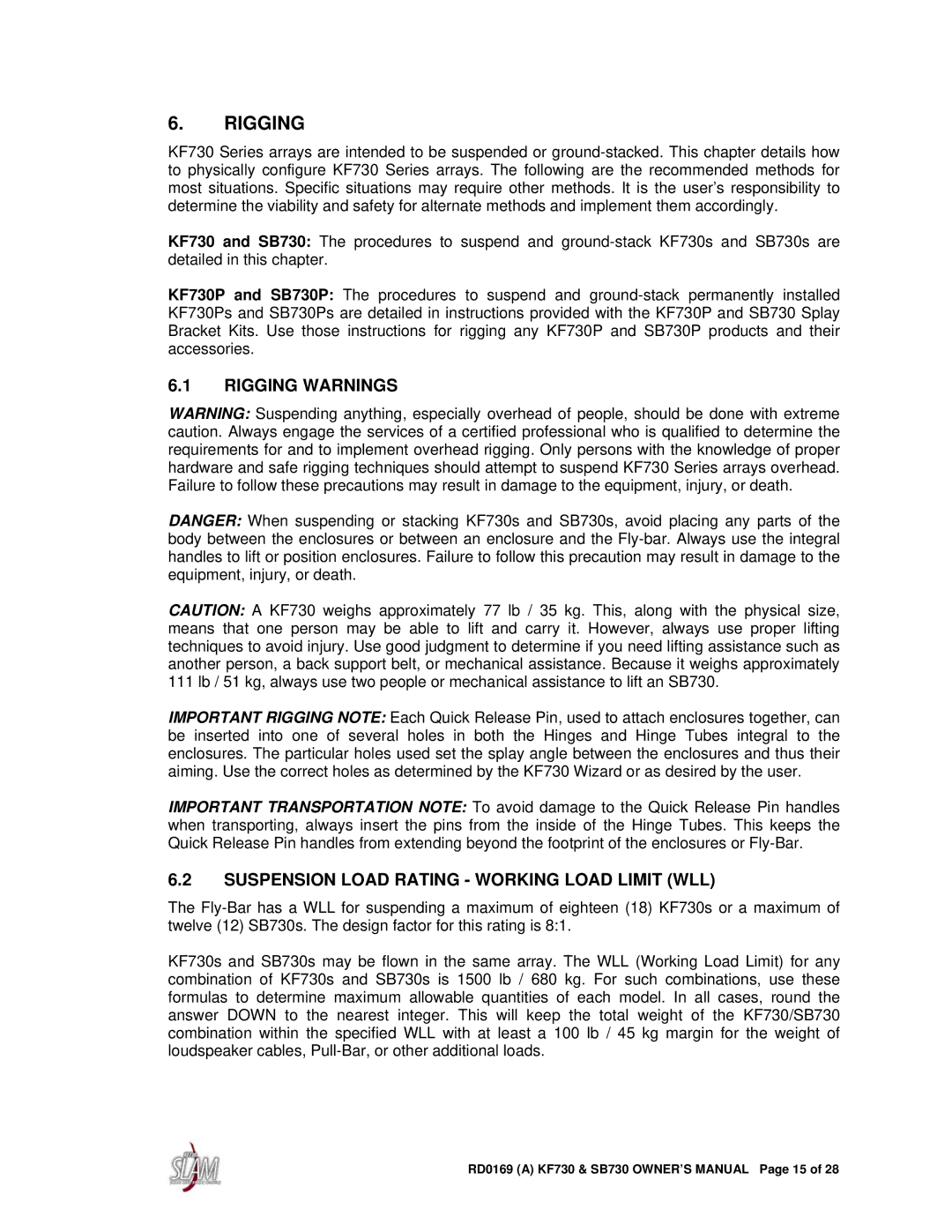
6.RIGGING
KF730 Series arrays are intended to be suspended or
KF730 and SB730: The procedures to suspend and
KF730P and SB730P: The procedures to suspend and
6.1RIGGING WARNINGS
WARNING: Suspending anything, especially overhead of people, should be done with extreme caution. Always engage the services of a certified professional who is qualified to determine the requirements for and to implement overhead rigging. Only persons with the knowledge of proper hardware and safe rigging techniques should attempt to suspend KF730 Series arrays overhead. Failure to follow these precautions may result in damage to the equipment, injury, or death.
DANGER: When suspending or stacking KF730s and SB730s, avoid placing any parts of the body between the enclosures or between an enclosure and the
CAUTION: A KF730 weighs approximately 77 lb / 35 kg. This, along with the physical size, means that one person may be able to lift and carry it. However, always use proper lifting techniques to avoid injury. Use good judgment to determine if you need lifting assistance such as another person, a back support belt, or mechanical assistance. Because it weighs approximately 111 lb / 51 kg, always use two people or mechanical assistance to lift an SB730.
IMPORTANT RIGGING NOTE: Each Quick Release Pin, used to attach enclosures together, can be inserted into one of several holes in both the Hinges and Hinge Tubes integral to the enclosures. The particular holes used set the splay angle between the enclosures and thus their aiming. Use the correct holes as determined by the KF730 Wizard or as desired by the user.
IMPORTANT TRANSPORTATION NOTE: To avoid damage to the Quick Release Pin handles when transporting, always insert the pins from the inside of the Hinge Tubes. This keeps the Quick Release Pin handles from extending beyond the footprint of the enclosures or
6.2SUSPENSION LOAD RATING - WORKING LOAD LIMIT (WLL)
The
KF730s and SB730s may be flown in the same array. The WLL (Working Load Limit) for any combination of KF730s and SB730s is 1500 lb / 680 kg. For such combinations, use these formulas to determine maximum allowable quantities of each model. In all cases, round the answer DOWN to the nearest integer. This will keep the total weight of the KF730/SB730 combination within the specified WLL with at least a 100 lb / 45 kg margin for the weight of loudspeaker cables,
RD0169 (A) KF730 & SB730 OWNER’S MANUAL Page 15 of 28
